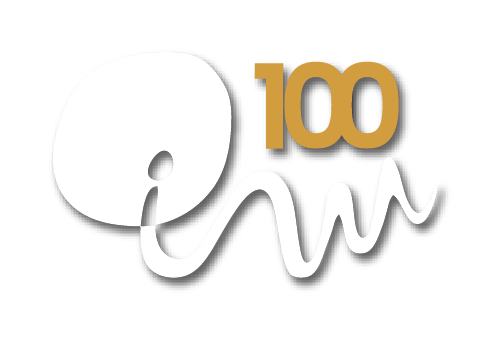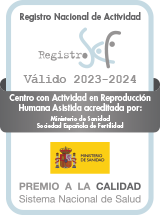In Vitro Fertilisation
with own eggs
What is In Vitro Fertilisation?
In Vitro Fertilisation (IVF) is one of the most effective and well-known techniques in the field of Assisted Reproduction. This procedure involves fertilising an egg in the laboratory using sperm from either the partner or a sperm donor. Subsequently, the resulting embryo or embryos are transferred to the patient’s uterus.
To obtain the best results, at Institut Marquès we always use intracytoplasmic sperm injection (ICSI) in all IVF treatments.
The incorporation of the latest technological advances in our laboratories and the personalised approach to each treatment accounts for Institut Marquès’ exceptional success rates in In Vitro Fertilisation procedures. Our medical team is responsible for carrying out a thorough diagnosis to achieve success in the In Vitro Fertilisation process.
Contents
Contents
When is In Vitro Fertilisation recommended?
In Vitro Fertilisation is particularly indicated in the following situations:
- Previous unsuccessful insemination cycles (with or without a sperm donor).
- Obstruction or absence of fallopian tubes.
- Women aged 38 years or older.
- Low ovarian reserve
- Moderate or severe endometriosis.
- Genetic disorders that require a preimplantation study.
- Long-standing infertility.
- Unknown cause of infertility or sterility.
- Recurrent miscarriages
In Vitro Fertilisation With Donor Sperm
- Single women.
- Lesbian couples.
- Moderate or severe male factor (not solvable with Artificial Insemination).
- Men who cannot use their sperm due to genetic or chromosomal disorders.
- Men who are carriers of a sexually transmitted disease.
Success Rates of In Vitro Fertilisation With Own Eggs
The success of In Vitro Fertilisation is measured through the pregnancy rates achieved with embryos generated from a single egg retrieval. This includes the transfer of fresh embryos and any possible frozen ones. At Institut Marquès, we are proud to say that we have achieved excellent results transferring a single embryo in 90 % of IVF treatments.
35 years old Semen couple | 35 years Semen bank | 35-39 years old Semen couple | 35-39 years Semen bank | ≥40 years Semen couple | ≥40 years Semen bank | |
|---|---|---|---|---|---|---|
Pregnancy/cycle 82.6 % | 82,6% | 91,4% | 68,1% | 80,3% | 36,1% | 31,6% |
Clinical pregnancy/cycle | 76,6% | 84,7% | 62,3% | 73,7% | 27,7% | 26,6%
|
Live birth/cycle | 74,2% | 77,1% | 57,1% | 68,8% | 16,6% | 26,6%
|
Twin pregnancy | 4,0% | 4,2% | 4,1% | 4,0% | 0% | 0% |
Average frozen embryos | 4,0 | 3,6 | 3,2 | 3,5 | 2,3 | 2,4 |
Average transferred embryos | 1,2 | 1,1 | 1,2 | 1,1 | 1,3 | 1,2 |
Phases of the In Vitro Fertilisation Process
The phases of an In Vitro Fertilisation treatment at Institut Marquès include ovarian stimulation, retrieval of eggs through ovarian puncture, in vitro fertilisation in the laboratory and finally, embryonic transfer to the patient’s uterus. Each step is crucial and requires careful supervision by our expert medical team.
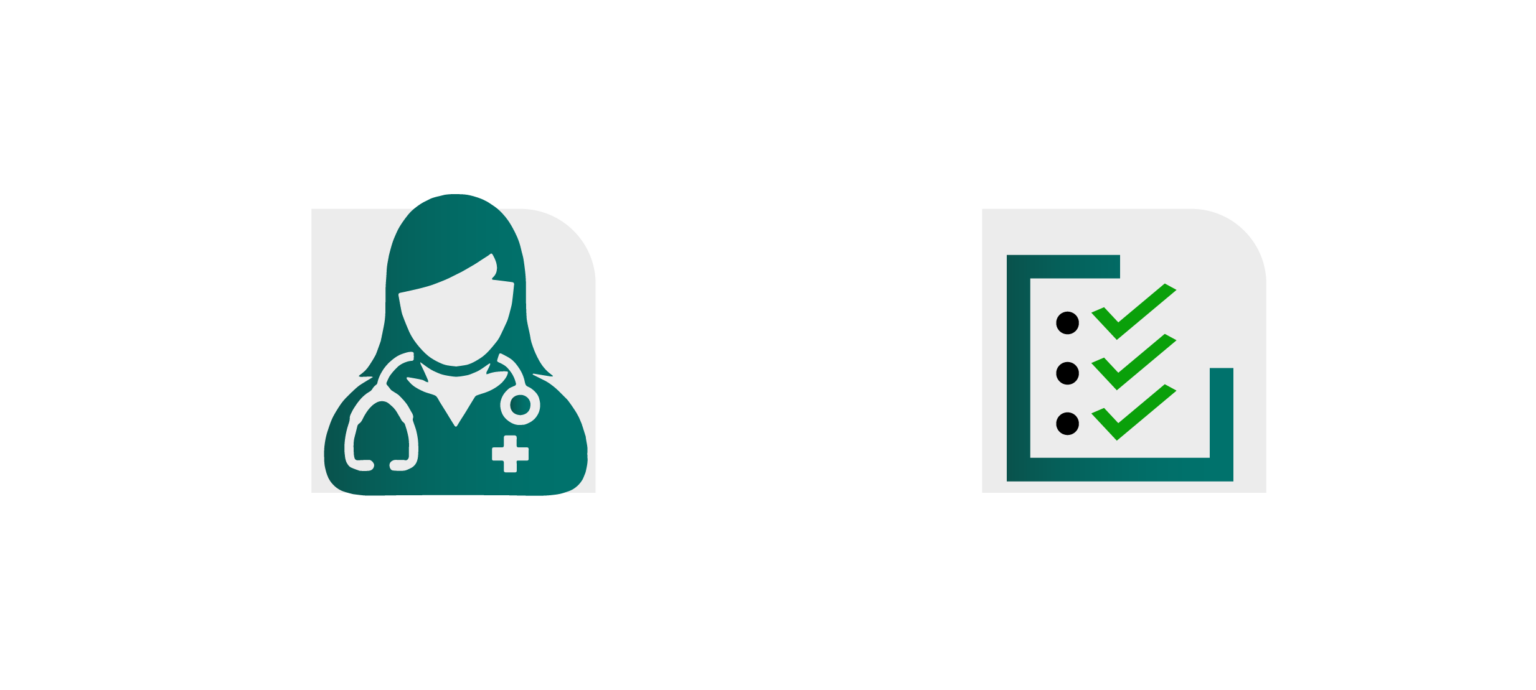
First visit with an Assisted Reproduction specialist
- Medical tests
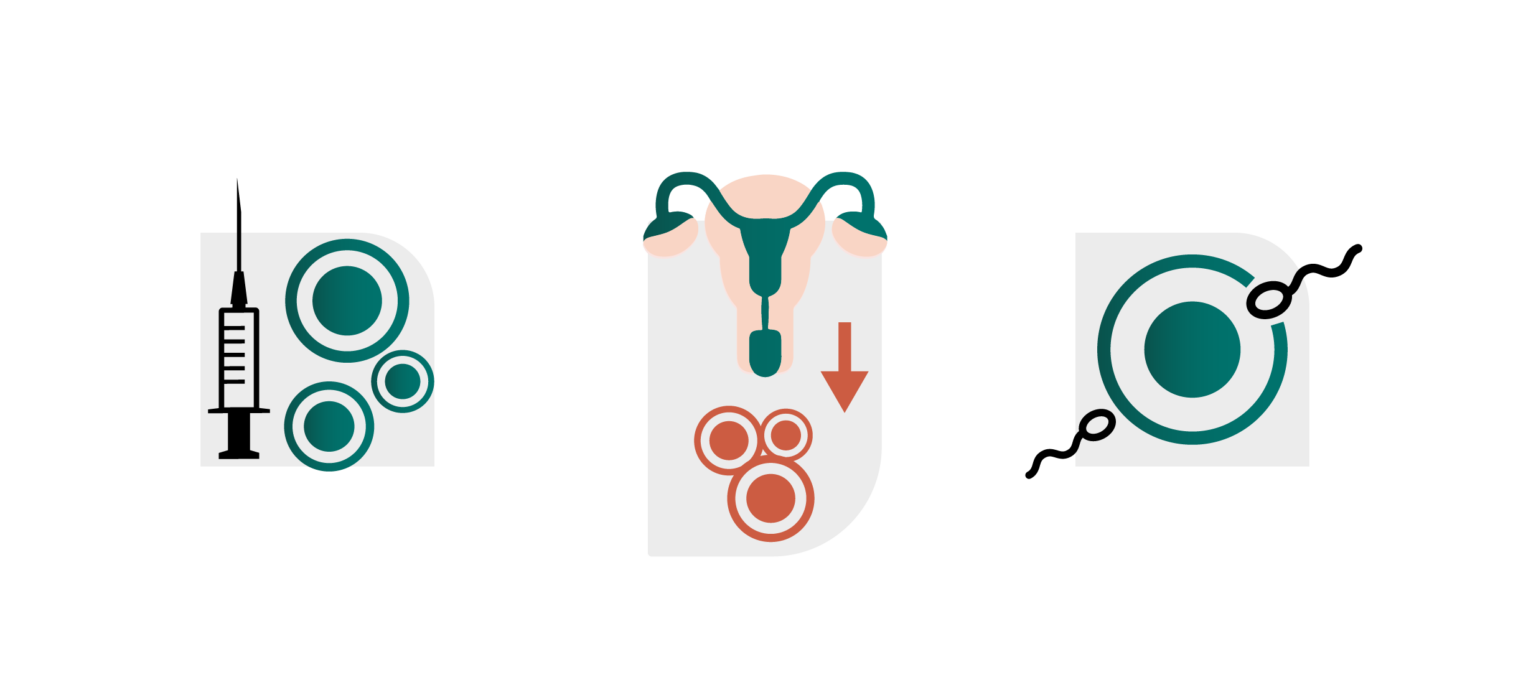
- Puncture and IVF
- Oocyte retrieval (ovarian puncture)
- Fertilisation in the laboratory
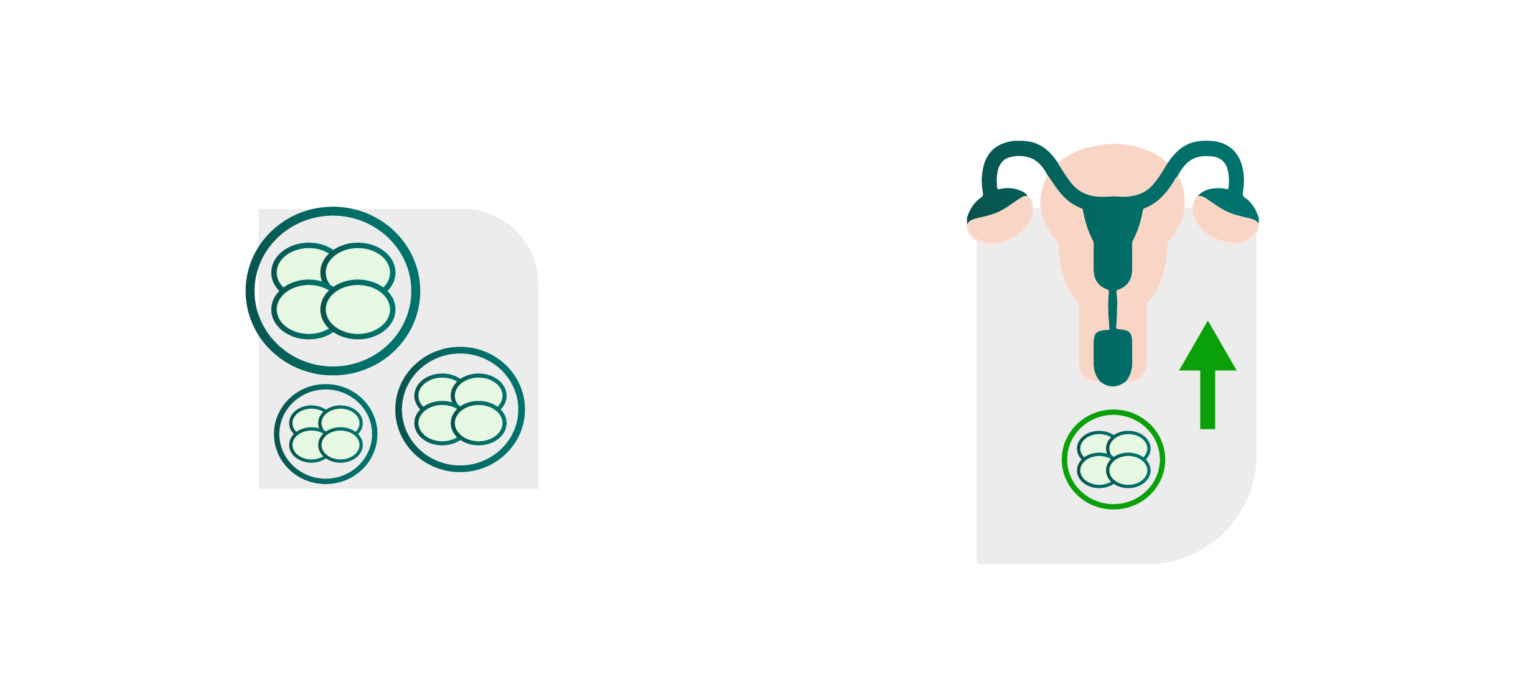
- Culture and Transfer
- Transfer of the embryos into the patient's uterus.
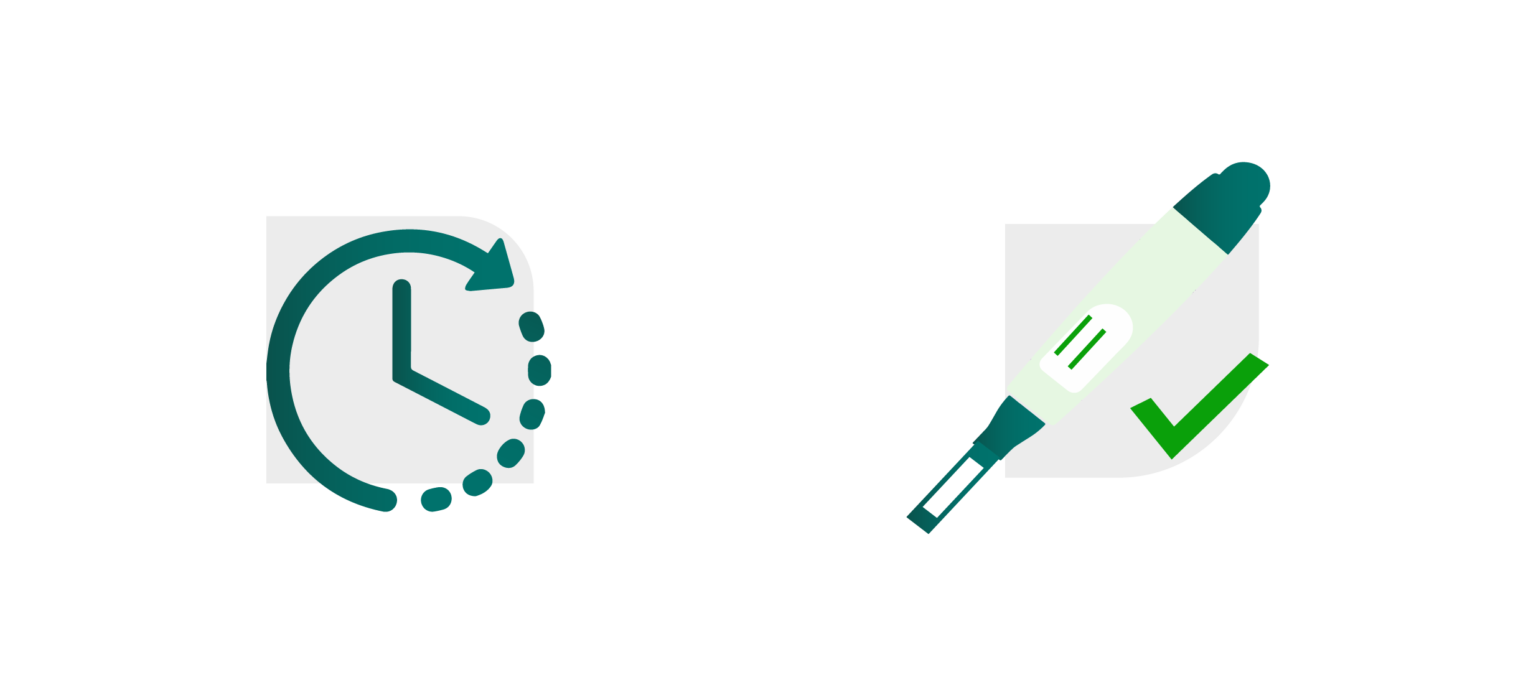
Pregnancy test
- Pregnancy test
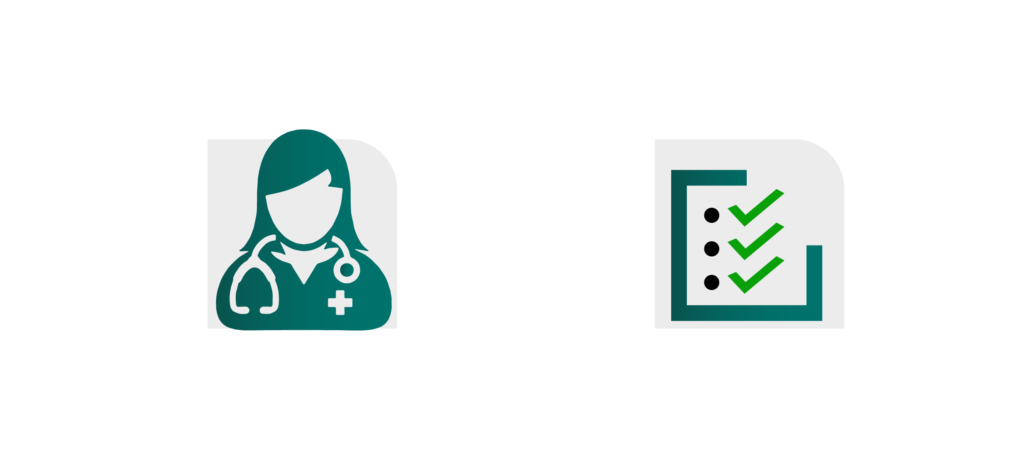
First visit with an Assisted Reproduction specialist
- Medical tests
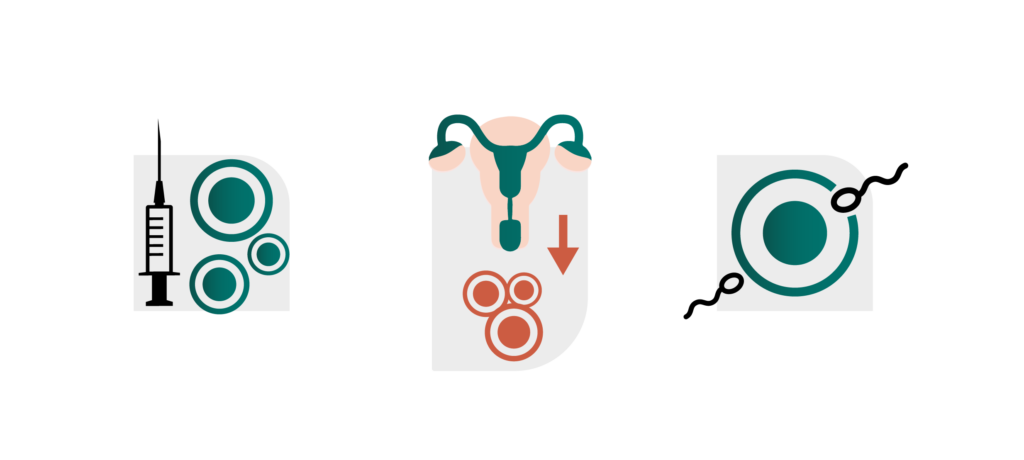
- Puncture and IVF
- Oocyte retrieval (ovarian puncture)
- Laboratory fertilisation
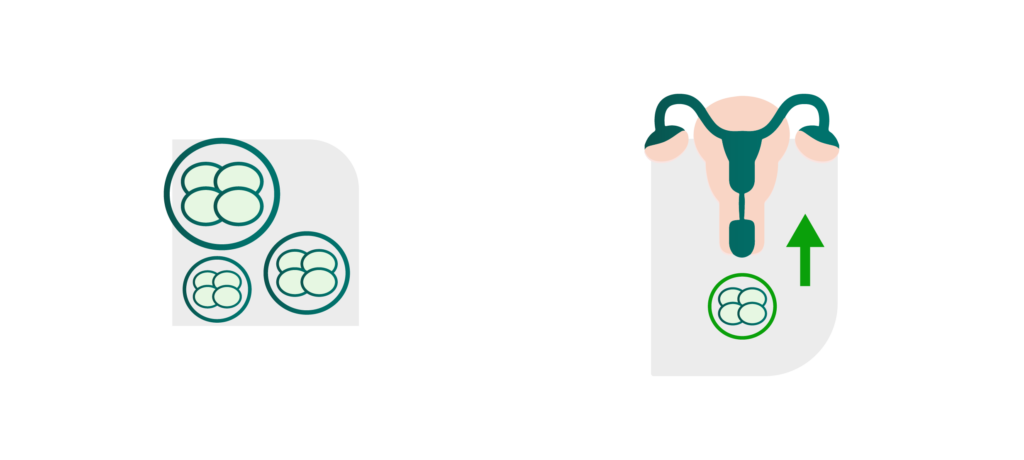
- Culture and Transfer
- Transfer of the embryos into the patient's uterus.
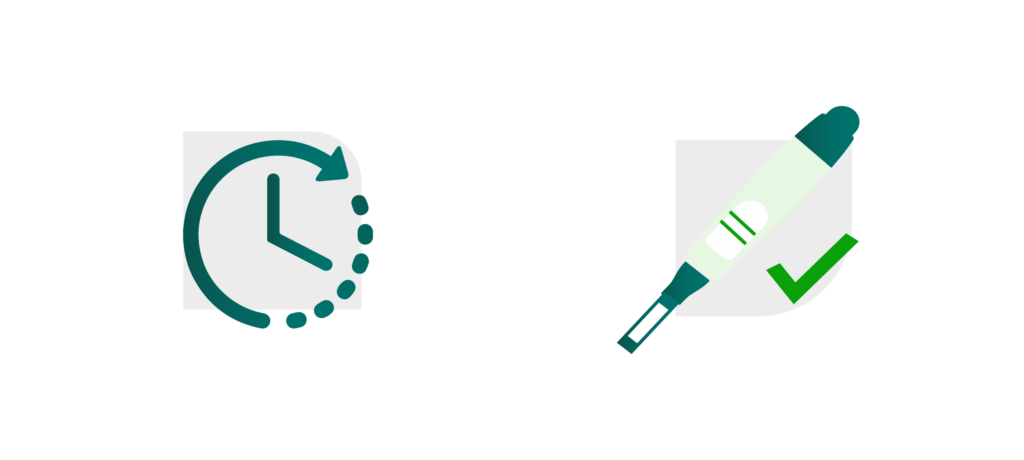
Pregnancy test
How do we select your sperm donor?
Cuando el semen de la pareja presenta algún problema, en el caso de mujeres sin pareja o de parejas lesbianas, es necesario recurrir al esperma de un donante.
En Institut Marquès, contamos con nuestro banco de semen con más de 2.000 donantes premium. Son donantes anónimos, ya que la Ley 14/2006 del 14 de mayo (española) sobre técnicas de reproducción humana asistida, establece que la donación se tiene que realizar de manera anónima, voluntaria, informada y no remunerada.
Al disponer de nuestro propio banco de semen, conocemos a los donantes y seleccionamos solo los mejores. Son jóvenes que deciden donar para ayudar a otras personas a formar una familia y que deben superar exhaustivas pruebas médicas y psicológicas. Contamos, además, con todos los fenotipos para encontrar el más adecuado para cada caso. En Institut Marquès, es el propio médico quien se encargará de elegir el donante de esperma más adecuado para cada paciente, teniendo en cuenta sus características físicas y los rasgos hereditarios de su personalidad. Buscamos el «matching» perfecto.
Donantes conocidos o no anónimos: La donación de gametos en España es anónima; en caso de preferir hacer el tratamiento con donantes conocidos o no anónimos, deberá realizarse en una de las clínicas con las que Institut Marquès colabora.
Other In Vitro Fertilization treatments with your own eggs
These techniques reduce the costs of treatment and discomfort for the patient. However, the number of eggs obtained is reduced, so the chances of pregnancy are lower than that of conventional IVF.
Who is this treatment for?
It is particularly recommended for patients under 35 years of age who have a good ovarian reserve but need medical help to have a child.
Women who choose Mini IVF or IVF in a natural cycle are those who do not wish to undergo treatments with high doses of stimulating hormones or those who have some contraindication to hormonal treatment.
This procedure consists of repeating several cycles of ovarian stimulation (before proceeding to embryo transfer) to accumulate enough eggs. In this way, after fertilisation, more quality embryos are obtained and therefore, the chances of successful IVF are increased.
Institut Marquès has designed a special package for those looking for a complete and immersive experience during their Assisted Reproduction process. This is more than just a treatment and adds value by guiding and accompanying future parents every step of the way: from the initial organisation, through administration, to the detailed monitoring of their treatment at our prestigious clinic in Barcelona. Our goal is for patients to feel supported and cared for at all times, so they can focus on what is truly essential: enjoying the exciting journey of becoming parents. More information
Prices of In Vitro Fertilisation
Below you can consult our basic prices for In Vitro Fertilisation treatments. We will prepare a personalised budget that will include any additional techniques or services you may need after your medical visit.
We can offer financing options with up to 24 months interest-free to help you realise your dream of becoming a parent.
In Vitro Fertilisation
What is included?-
Guidance, programming and medical control of the cycle
-
Ovarian stimulation
-
Egg retrieval
-
Operating theatre and outpatient hospitalisation costs
-
Andrology and IVF Laboratory Services
-
Oocyte isolation
-
Preparation of the semen sample
-
Sperm microinjection (ICSI)
-
Culture of embryos and daily study of the status of each embryo.
-
Embryo transfer
-
Monitoring of the process until the 8th week of gestation
-
Pregnancy tests
-
Medical support and ultrasound monitoring
*The costs of the patient's medication are not included in the treatment.
Mini IVF
What is included?-
Guidance, programming and medical control of the cycle
-
Egg retrieval
-
Operating theatre and outpatient hospitalisation costs
-
Andrology and IVF Laboratory Services
-
Oocyte isolation
-
Preparation of the semen sample
-
Sperm microinjection (ICSI)
-
Culture of embryos and daily study of the status of each embryo.
-
Embryo transfer
-
Monitoring of the process until the 8th week of gestation
-
Pregnancy tests
-
Medical support and ultrasound monitoring
*The costs of the patient's medication are not included in the treatment.
Cumulative IVF
What is included?-
Guidance, programming and medical control of the cycle
-
Ovarian stimulation
-
Egg retrieval
-
Operating theatre and outpatient hospitalisation costs
-
Andrology and IVF Laboratory Services
-
Oocyte isolation
-
Preparation of the semen sample
-
Sperm microinjection (ICSI)
-
Culture of embryos and daily study of the status of each embryo.
-
Monitoring of the process until the 8th week of gestation
-
Pregnancy tests
-
Medical support and ultrasound monitoring
*The costs of the patient's medication are not included in the treatment.
IM Premium pregnancy insurance
At Institut Marquès, we are confident in our ability to help you and want to accompany you in your life project. T his is why we have designed our exclusive IM Premium Pregnancy Insurance. It offers the opportunity to recover 70 % of treatment costs (refund) if, after three cycles, a progressive pregnancy has not been achieved. We propose a fixed price that will cover these three cycles in some treatments. Are included: In Vitro Fertilisation, Embryo Donation y In Vitro Fertilisation with donor eggs. > Further information
FAQs In Vitro Fertilisation (IVF)
IVF offers multiple advantages, including the possibility of overcoming fertility problems in both men and women, the option of selecting higher quality embryos, and the ability to perform pre-implantation genetic testing to detect possible hereditary diseases.
IVF itself is generally not painful, although some procedures, such as ovarian puncture and hormone injections, may cause temporary discomfort. Patients often describe these symptoms as similar to premenstrual syndrome.
The cost of an IVF cycle can vary considerably depending on the clinic and country, but generally ranges between 4,000 and 10,000 euros. This cost includes, among others, the puncture, fertilisation in the laboratory, and embryo transfer, although additional costs may apply for services such as embryo cryopreservation.
Ovarian stimulation is a crucial stage in IVF, where hormonal drugs are used to stimulate the ovaries to produce multiple eggs in a single cycle. This process increases the chances of success by having multiple eggs to fertilise.
Ovarian stimulation usually lasts about 10 days, depending on the response of the ovaries.
ovaries to the medication. During this time, ultrasound scans and blood tests are performed to adjust the dose of medication and schedule the ovarian puncture.
Ovarian puncture is a minimally invasive procedure performed under sedation to remove eggs from the ovarian follicles. Using a fine needle under ultrasound guidance, the eggs are collected and prepared for fertilisation in the laboratory.
Ovarian puncture may cause mild discomfort or abdominal cramping after the procedure, but it is performed under sedation to minimise pain during the procedure. Most women can resume normal activities the next day.
IVF fertilisation is performed in a laboratory where the collected eggs are combined with the sperm. At Institut Marquès it is performed by intracytoplasmic sperm injection (ICSI), a process in which a single sperm is injected directly into an egg.
Embryo transfer is generally performed 3 to 5 days after fertilisation, when the embryos have reached the blastocyst stage. This allows the embryos with the highest implantation potential to be selected.
The number of embryos to be transferred depends on several factors, including the age of the woman and the quality of the embryos. At Institut Marquès we transfer a single embryo in more than 90% of cases. This demonstrates that the probability of success does not decrease and thus avoids the risks of multiple pregnancies.
Early signs of a successful transfer may include light bleeding, abdominal swelling and breast tenderness. However, definitive confirmation is only obtained through a pregnancy test about 10-12 days after the transfer.
Embryos that are not used in the transfer can be cryopreserved for future pregnancy attempts. There is also the option of donating the embryos to other couples or using them for research purposes.
Embryos can be frozen and stored for several years without losing their viability. The decision of when to use these embryos depends on the couple’s reproductive plans.

